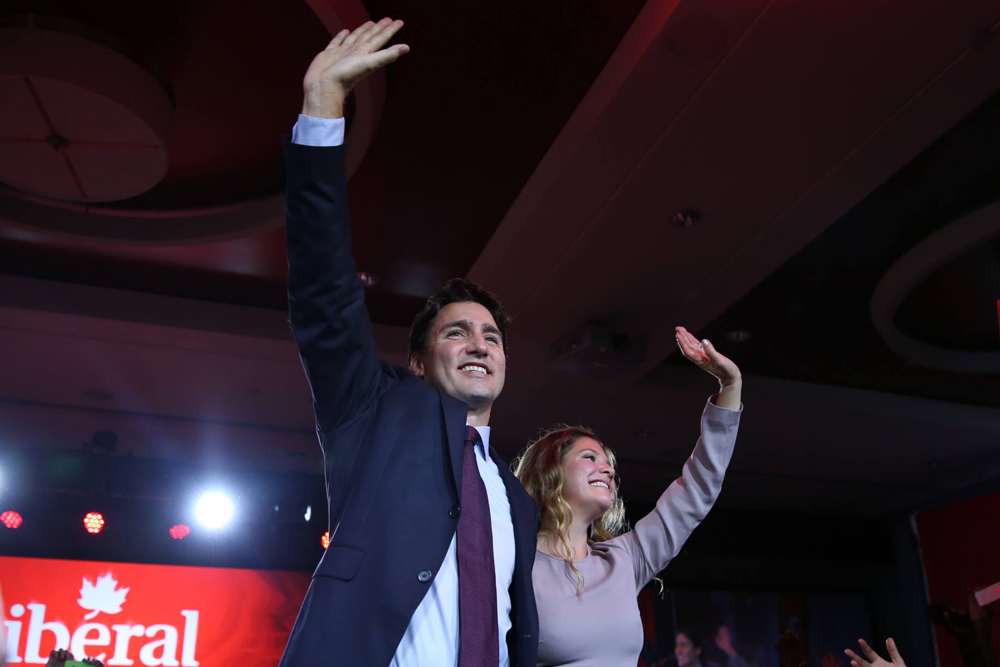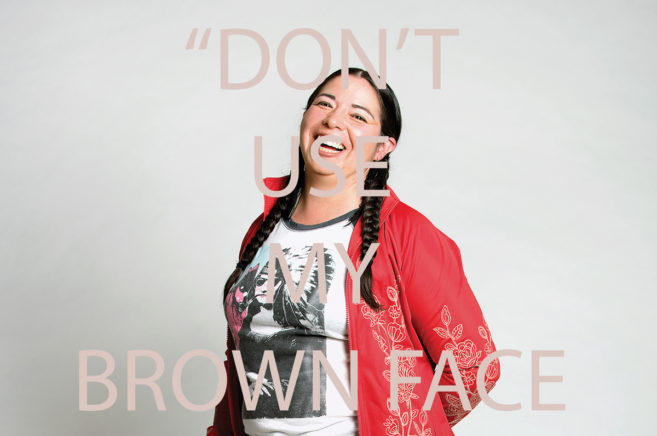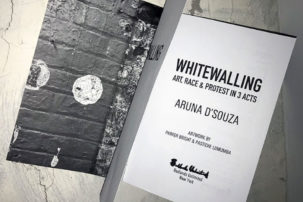After one of the most contentious election races in history, Canadians have kicked Stephen Harper and the Conservative Party to the curb after nearly a decade in power.
The Liberals, who began the campaign with a mere 37 seats in the House of Commons, painted large swaths of the country red and finished the night with 184 seats and an unexpected majority government.
Now that the dust has settled, what should citizens interested in the arts keep their eyes on during Justin Trudeau’s first year as prime minister? Here are five things to watch:
1. Will the Liberals keep their cultural funding promises?
The Liberal Party platform contains a laundry list of funding promises for the cultural sector:
- $150 million in new annual funding for the CBC.
- Doubling investment in the Canada Council for the Arts to $360 million per year.
- Increased funding for Telefilm Canada and the National Film Board, totalling $25 million.
- An increased $25 million budget for the Promart and Trade Routes international cultural promotion programs.
- New cultural infrastructure as part of a $20 billion commitment in social infrastructure.
- Increased funding for the Young Canada Works program to train young museum staff.
While a few of these commitments lack specifics, others are concrete and ambitious. And since Trudeau promised to run deficits to implement his campaign promises, we should expect to see the new funding implemented in the Liberals’ first federal budget.
Tempering this optimism, however, is the course of history. The last time the Liberal Party ran on such an ambitious platform of social spending was 1993, when the Chrétien Liberals decimated the Tories at the polls before tossing aside their campaign platform and implementing deep spending cuts.
“Screw the Red Book,” then finance minister Paul Martin infamously said of the Liberal platform. “Don’t tell me what’s in the Red Book. I wrote the goddamned thing. And I know that it’s a lot of crap.” The question remains on whether Justin Trudeau shares a similar perspective.
2. Will Justin Trudeau scrap C-51?
The Liberals pulled off an election victory despite their support for the Conservatives’ widely unpopular Bill C-51. Canada’s new national security law was derided by legal experts, community groups, creatives and artists as unnecessarily jeopardizing freedom of expression in this country.
“Freedom of thought and speech is an essential precursor to creating honesty,” says Vancouver-based musician Tamara Nile, who opposes C-51 and spent the dying moments of the 2015 campaign wielding a banjo and “channelling Pete Seeger” on Elizabeth May’s tour bus. “Being constantly watched can deter us from taking chances and exploring new and potentially unpopular ideas.”
While the bill passed with Liberal support, Justin Trudeau has pledged to repeal the
“problematic elements of Bill C-51,” introducing new legislation that “better balances our collective security with our rights and freedoms.” They have committed to defining “terrorist propaganda” more clearly, which should allay fears that constitutionally protected creative expression would be incriminated alongside violent beheading videos.
Beyond this, however, they haven’t been terribly specific about what changes to C-51 will look like, and with the NDP reduced to third-party status there will be little pressure from within Parliament to fully repeal the law. The Liberals also lack a strong record of opposing other Conservative policies that have damaged the right of Canadians to access culture online, including a recent 20-year extension on copyright terms.
3. Can the Liberal government spare us from the TPP?
The issue of how to deal with the Trans-Pacific Partnership (TPP), a proposed international trade agreement among 12 Pacific Rim countries accounting for 40% of global trade, is much trickier. While the implications of the deal are broad and far-ranging, there are specific areas of concern for artists and creators.
“It’s pretty clear the TPP is going to overturn large chunks of Canadian copyright law,” explains David Christopher of OpenMedia, a digital-rights advocacy group. “It’s all the more disappointing because we’ve only just recently gone through a process of trying to shape balanced copyright rules here.”
“The regime that [the Conservatives] ended up putting in place did at least attempt to strike a balance between the needs of Internet users to be able to express themselves freely online and the needs for artists and creators to be fairly compensated for their work. It looks like the TPP is going to override a lot of that.”
The TPP will lengthen copyright terms, keeping important works out of the public domain, and institute new criminal penalties for small-scale copyright infringement and the circumvention of digital locks. It may even sound the death knell for the beloved animated GIF.
And while it was the Harper Conservatives who committed us to the TPP, it’s unlikely that a Liberal government will get us out of it. “Although the deal still needs to be ratified, it’s not clear whether there’s any real scope for them to renegotiate any parts of this deal,” says Christopher.
4. Will the Liberals rebrand the country?
After running a successful electoral campaign that relied so heavily upon his own brand image, will Justin Trudeau undertake a rebranding of the nation itself?
Under Stephen Harper, the Conservatives worked hard to visually reshape Canada in their own image—and committed a litany of aesthetic crimes in the process. For example, in redesigning our currency, they mangled the typography and depicted a botanically inappropriate maple leaf. They also enraged graphic designers from St. John’s to Sicamous by crowdsourcing a logo for Canada’s upcoming 150th birthday in 2017.
And then there’s the passport. In a study commissioned by Passport Canada, citizens slammed our new passport design for its dated imagery and near-exclusion of women and people of colour. “According to the government, we are white guys, rural, warlike and sporty, but not literate,” Heather Mallick wrote of the passport in the Toronto Star. “Our landscapes are bleak, our buildings drab, our statuary undistinguished. These are not propellant images. In most, we are either stationary or plodding.”
Perhaps the branding experts who helped carry Trudeau to 24 Sussex Drive will stay on and create a consistent, contemporary and inclusive brand for the country. Or maybe, if we’re lucky, they’ll delegate the national makeover to Bruce Mau Design, who have already proposed an intriguing new identity to replace our current grab bag of cultural clichés.
5. Will the rest of us keep up the pressure?
While the end of the Stephen Harper era is cause to celebrate, in many ways the struggle to ensure that progress is made on the arts and culture front has just begun.
“The real advocacy work begins now,” cautions Kate Cornell, co-chair of the Canadian Arts Coalition. “The best way that the arts sector can ensure federal support is a unified message. Concerned citizens should be in touch with their MPs to tell them that the arts in Canada are vital. Advocates will have to work hard to be heard.”
Tamara Nile, who for now has climbed off the Green Party bus and back on stage performing as T. Nile, issues a similar call to action. “For our government to truly represent and work for us, we need to be involved. Our political engagement is needed now more than ever to set the tone for ‘Real Change.’ It’s time to get to work.”
Rob Maguire is a founding editor of Art Threat, a publication about political art and cultural policy, and an arts-marketing consultant based in Vancouver. He tweets as @RobMaguire.









